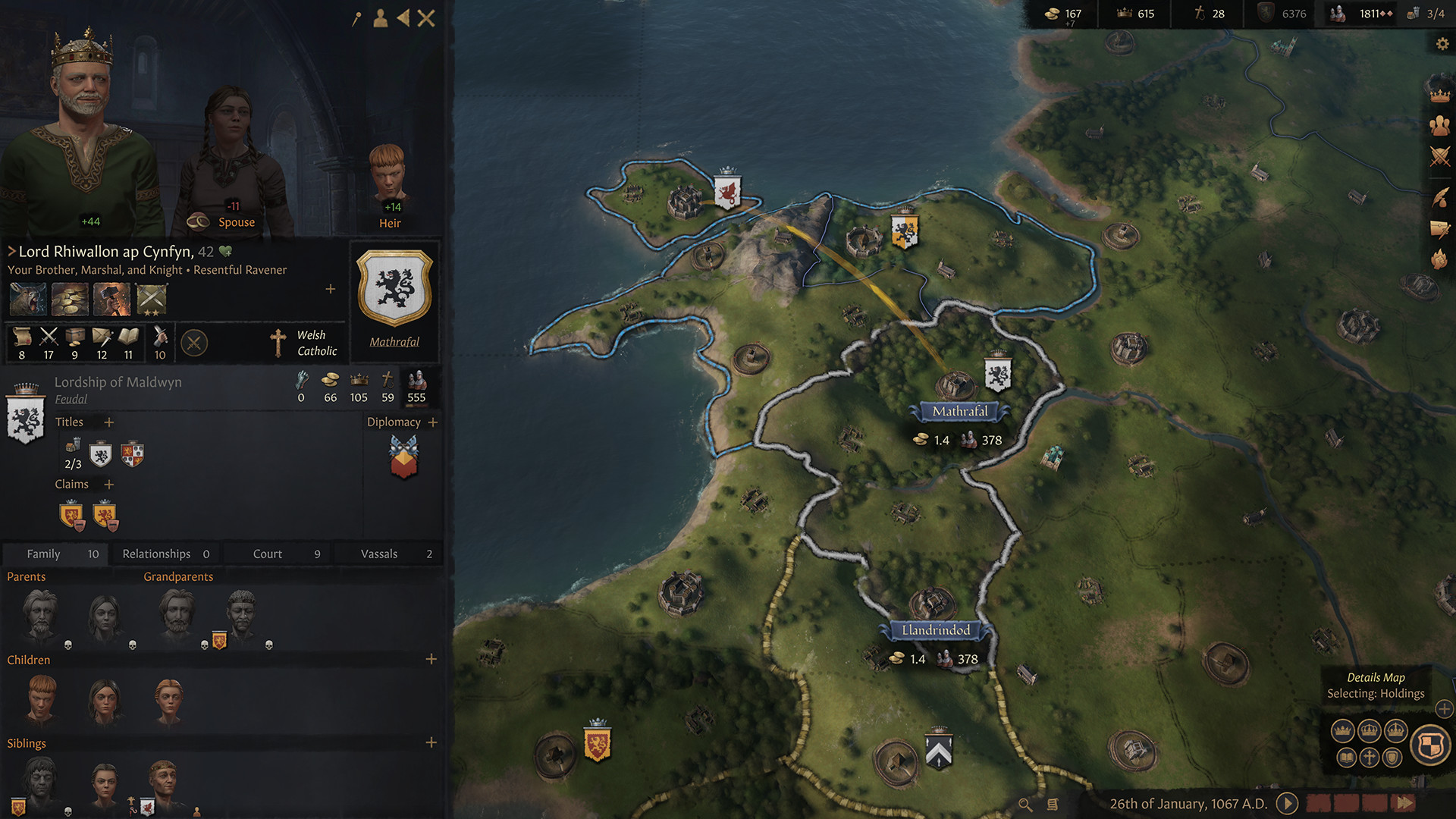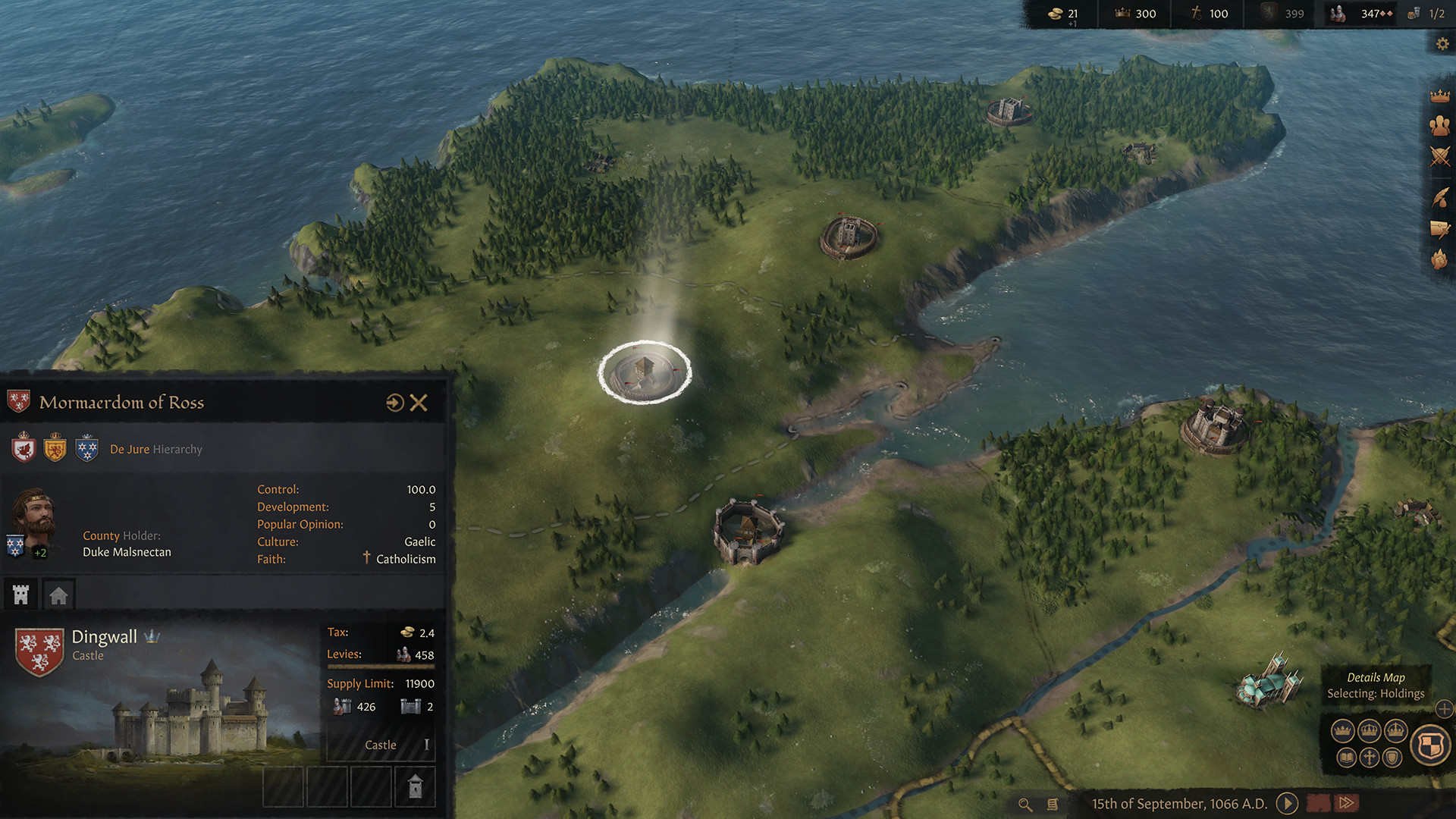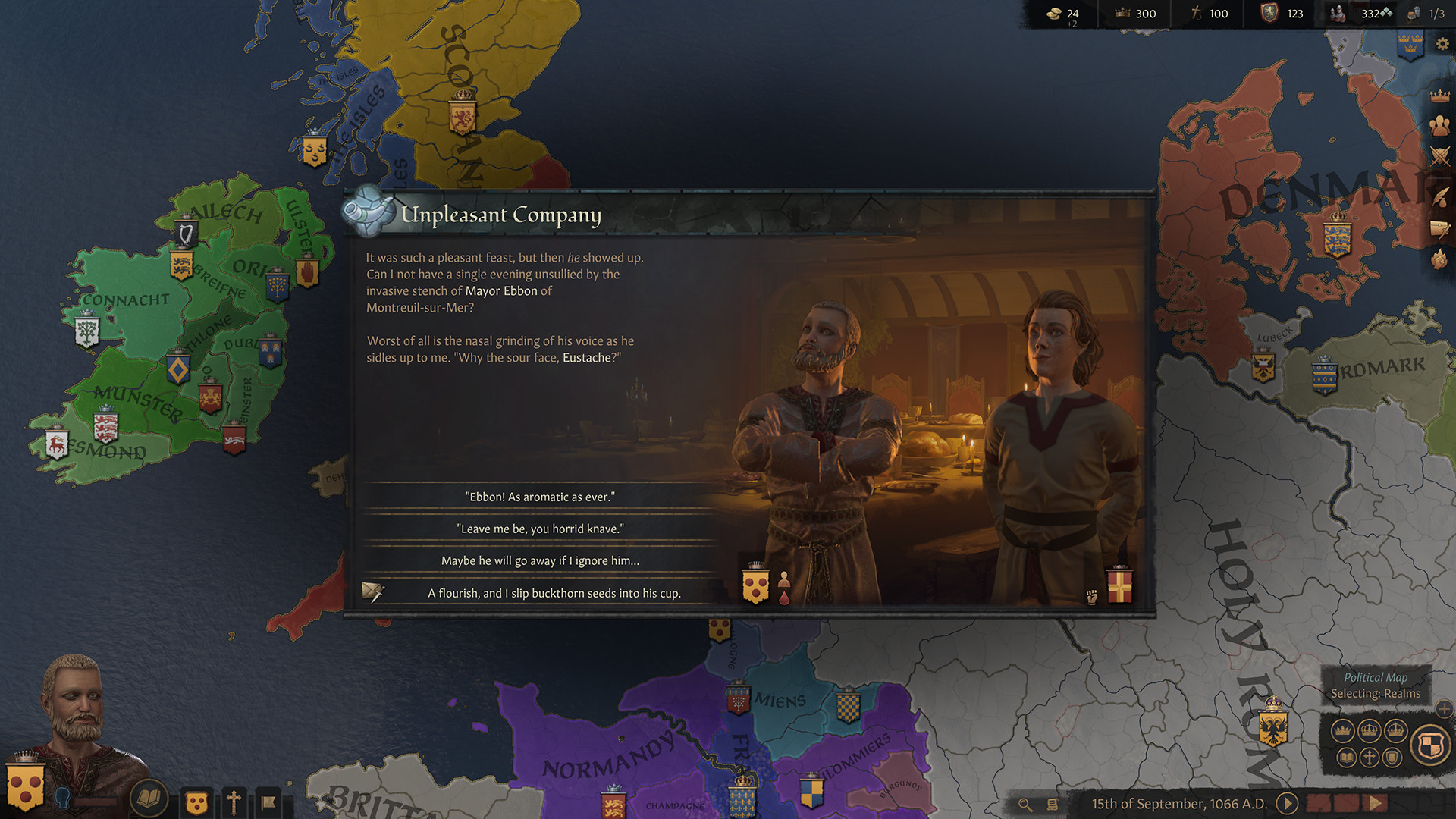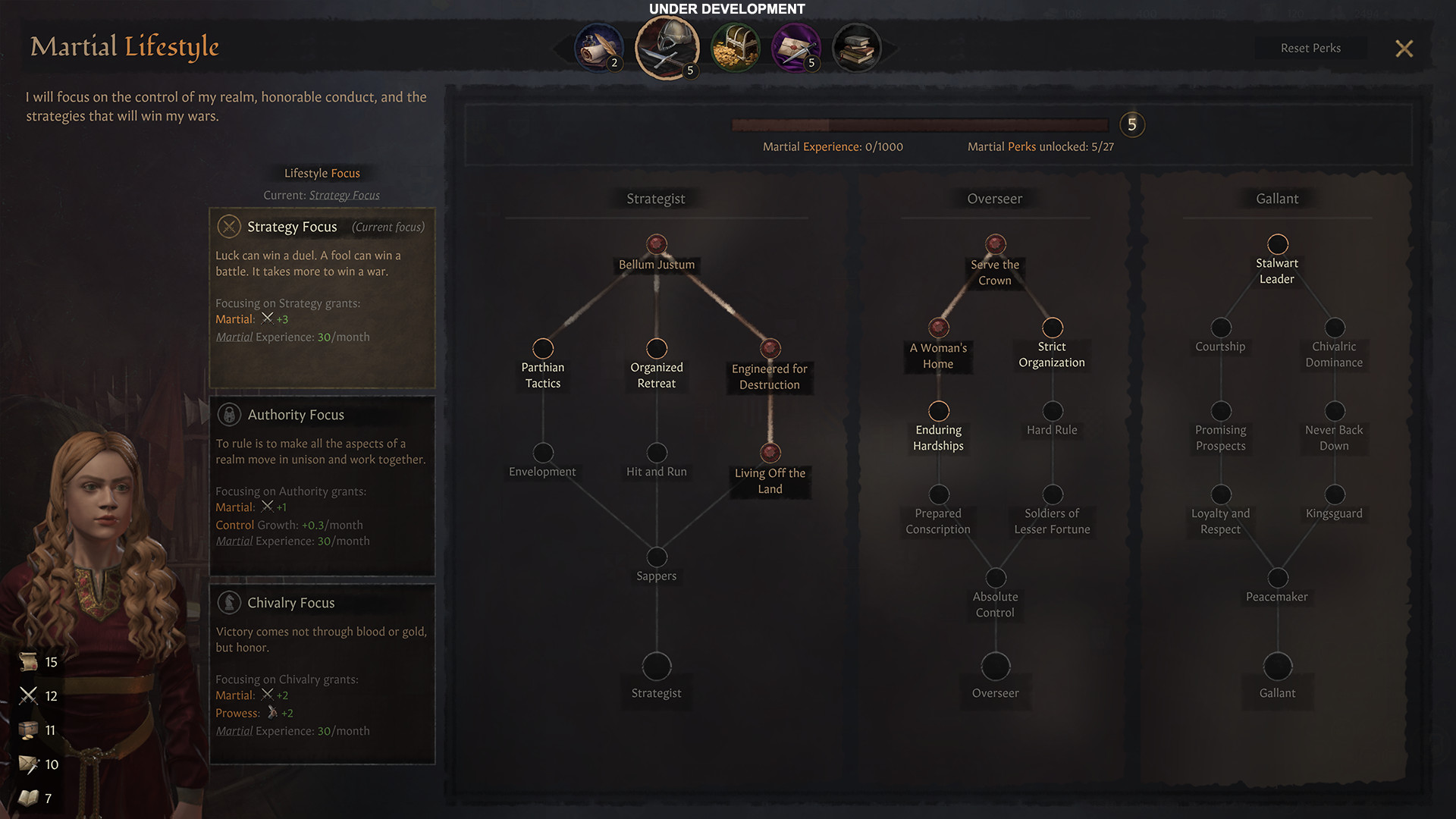Crusader Kings III is the newest generation of Paradox Development Studio’s beloved medieval role-playing grand strategy game. Expand and improve your realm, whether a mighty kingdom or modest county. Use marriage, diplomacy and war to increase your power and prestige in a meticulously detailed map that stretches from Spain to India, Scandinavia to Central Africa.
But uneasy lies the head that wears a crown! Your cunning is your greatest weapon, and intelligence is the key to all successful strategy. Guard your life and the future of your dynasty, because enemies foreign and domestic envy your status. Engage in espionage, join political factions, punish heretics or use assassins to make sure your throne passes safely to the next generation.
Crusader Kings III is the medieval strategy role-playing experience that you have been waiting for.
- Shape Your Dynasty: Guide unique characters through history, choosing lifestyles best suited to their personalities and your ambitions.
- Rewrite Medieval History: Dynasties will change and adapt to changes in family and politics, swimming in a rich world of religious faith and royal pageantry.
- Build a Mighty Kingdom: Use cold steel or warm words to expand your realm; war backed by cunning, and diplomacy that unites bloodlines.
- Experience High Drama: Stranger than fiction stories leap off the screen, as characters plot against you and events push you to extremes.
- Learn as You Go: Guided advice helps newcomers and veterans navigate a rich medieval world. In-game suggestions tip you off to paths you might not have considered.
- The Usual Crusader Kings Fun: Keep a stubborn council in line, scheme against your overbearing uncle or marry rich duchesses for their land and legacy.
Greetings!
The team is slowly coming back together after a well deserved summer vacation.
Today, lets have a look at what weve been doing to the culture setup and some small scale map tweaks. Most of the work weve spent on cultures has naturally gone into the cultural overhaul itself, but we have made some general improvements as well, most notably over in India and southern Europe.
Read our Dev Diary #67 - A View to a Map
To see the images, please visit our forums or website.
Enjoy the FAQ Royal Court and read all there is to learn about our upcoming Expansion

Starting with a small culture addition in southern Europe, and that some of you keen eyed readers noticed back in a previous dev diary, weve added back a fan favorite from CK2; Carantanian. The culture is quite extensive on game start and covers most of south-eastern Bavaria. From a historical point of view, the culture is of a west slavic origin, but as they got cut off from their ancestral brethren in the Carpathian Basin, they became gradually closer to the south slavic peoples. We represent this by Carantanian having a West Slavic Heritage, but speaking a South Slavic Language.
[Image of Carantanian culture]
Next, Ill hand it over to our local India expert, @Trin Tragula, to talk about (you guessed it) India!
Indian Culture Changes
The culture rework has been a good opportunity to rework the cultures in India a bit. The current setup here is one we inherited from Crusader Kings 2 and it was in some ways not entirely appropriate for our era. To better reflect the diversity of the subcontinent we have added two new cultures, changed the old ones a bit and also added a great number of potential culture names for when the large starting cultures diverge.
First of all we have gotten rid of Hindustani culture, and two new cultures have been broken away from what it used to cover in the south. The core part of the culture covers the Gangetic plain, and is now known as Kannauji after the Imperial city of Kannauj (Kanyakubja) which was the main prize of the region and often gave its name to it.
Hindustani itself is still around in a way, as a possible name for a cultural hybrid between an Iranian or Turkic culture with one of the north indian cultures.
[Image of the cultures in northern India]
Starting in the central parts of India the newly added Gond culture has been carved out of areas that were previously Hindustani, Marathi or Oriya. In 1066 most Gond counties are under the control of the Cedi kingdom and many of these counties are now also tribal at start. This culture covers a region that was in an odd place in the old setup, at the border of several cultures but not quite belonging to either of them.
[Image of the Gond culture]
Covering the Malwa plateau as well as some of the adjacent regions that were previously considered Hindustani. This new culture shares a language with the Rajasthani and Gujarati cultures, Gurjar Apabhramsa. The existing Rajput culture has been renamed to Rajasthani (since Rajput as a cultural distinction does not really fit our start date) and Assamese is now known as Kamrupi.
[Image of the Malvi culture]
Indian History and Title Improvements
While looking over the subcontinent it was also clear that in some areas the title setup was also better suited for the early modern era, rather than the medieval era around Crusader Kings III start dates. A number of baronies have been renamed and reorganized into new counties, and a number of new vassals have been scripted in, especially for the 1066 start.
The starting presumptions about who controlled what in 1066 have also been revisited to bring things better in line with history and create a more interesting start. There are now more starting characters, both independent and vassals, and most kings will no longer start above their domain limit.
Some things like the crisis of the Chola empire should also be a bit better represented in the initial setup, with strong and somewhat unruly Pandya vassals, a much stronger Lankan revolt and the Chera Raja now independent (with his historical vassals to support him). You can now also play as the future king, Kulottunga.
There are also other, minor changes, such as revisiting the extent of cultures like Kashmiri, and Telugu, and assigning a number of tribal counties in the eastern-central part of the subcontinent.
[Image of the Sinhalese rebellion in 1066]
That concludes todays dev diary. Until next time!

Minimum Setup
- OS: TBC
- Processor: TBC
- Graphics: TBC
Recommended Setup
- OS: TBC
- Processor: TBC
- Graphics: TBC
[ 6305 ]
[ 5935 ]
[ 2477 ]
[ 4756 ]




































